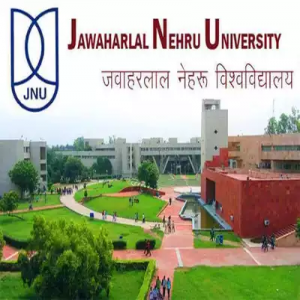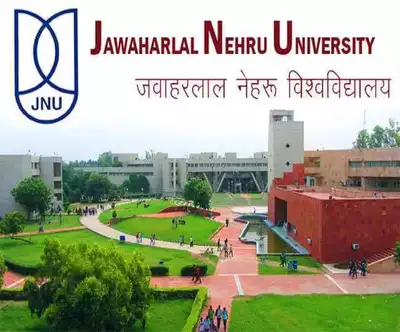

On Teachers' Day – the birthday of the Philosopher-King Radhakrishnan - this piece is written with a deep concern about the deplorable condition of higher education in India. To say that higher education is growing irrelevant may sound far-fetched. Of course, Higher Educational Institutions (HEIs) in the country have grown manifold and have been churning out thousands of graduates year after year who take up various professions and render service to society in different ways. Nevertheless, the education system, in general, and higher education in particular, has become increasingly irrelevant to a vast majority of people in that it failed to observe the norms of equity and justice and, hence, is unable to meet the aspirations of the youth representing the cross sections of society. When the nation celebrates Teacher's Day, it is vital to understand the state of higher education.
Denial of the right to express freely
The HEIs have lost academic autonomy. They are made to control students' minds and thought processes by denying them the right to express contrary opinions, nor are they permitted to have healthy academic debates and discussions. The teachers are told to get prior permission to organise academic seminars and conferences and to invite guest speakers. This is happening because appointments as the heads of the HEIs are based on their subscription to the ruling party's ideology and not on open merit. Appointing persons embracing the line of the ruling dispensation as Vice Chancellors of Universities and Heads of HEIs and regulating bodies, such as JNU, Delhi, IITs, IIMs, UGC, ICSSR, NTA, etc., has destroyed academic freedom, eroding credibility. It is the saffronisation of higher education.
The loss of the JNU's reputation and credibility as a premier national public university is painful. The JNU is now trying to sell its properties to corporates to fund the university rather than demanding and obtaining adequate funds from the government. The idea of an Institution of higher learning without freedom of speech and ex
According to Rowan Atkinson, an English actor and writer, the second most precious thing in life is the right to express oneself freely (the first being "food in mouth" and the third "roof over head"). There is growing intolerance to gag uncomfortable voices of dissent and restrict free speech as a tool to silence critics. John Stuart Mill, a 19th-century political philosopher known for his seminal work On Liberty, believed that there must be complete freedom of thought and ex
It is only when our beliefs are constantly challenged that they are strengthened. If we disregard an opinion that is actually true, we will be deprived of knowing the truth and correcting our false views. That is why all opinions must be allowed to flourish, as free discussions will correct our errors and benefit humanity. The ability to engage in critical thinking is more essential today than ever. The World Economic Forum has highlighted critical thinking as one of the paramount skills for the 21st century since the quality of our personal and professional lives is deeply intertwined with the quality of our thinking, particularly in the face of the phenomenon of fake news.
The Tata Institute of Social Sciences (TISS), once an iconic Institute that produced intellectuals and highly public-spirited men and women, is in the news these days for the wrong reasons. It asked the students to sign a pledge, considered part of an 'honour code'. The pledge, as reported in The Times of India on September 4, 2024, reads: "I would not indulge in any political anti-establishment, unpatriotic discussions, demonstrations, dharnas or any form of activities that disturb the academic environment of the Institute. I understand that any infringement would attract strict action against me." This is 'bondage' and a death warrant for the right to free ex
The Centre has brought all 54 central universities that receive more than 50 per cent of their income from grants under its direct control, with the Union Education Minister as the chairman of the governing bodies. That is how these elite universities have lost even administrative autonomy. We are witnessing growing intolerance of any dissent in these temples of higher learning. Whither Higher Education?
Dismantling public higher education
On August 29, Yogendra Yadav, an eminent educationist and social activist, addressed the students and the faculty under a banyan tree outside the Ambedkar University Campus in Delhi, as he was denied entry into the university. He has made very pertinent observations: This University was born as one of the most experimental universities in higher education. A public university devoted to social sciences and humanities. Today, public universities are closed in multiple ways. What happened in the last ten years is absolutely unprecedented. It is for the first time that a large number of first-generation children are entering the university. This should have been the time to strengthen public universities, give more funds, appoint more teachers, improve the infrastructure, and address the issues of inequality and discrimination. It is a historical opportunity.
Higher education is the most important pipeline for transforming gender inequality. Public higher education is being dismantled to perpetuate social inequalities. It is a complete destruction of the quality of higher education. Bureaucratic authoritarianism is being spread in universities. Public universities are being starved while private coaching institutions are mushrooming. Public universities are reduced to the level of district government offices. Such multi-faceted assault must be resisted. It is a part of the larger assault on democracy and the very ideas of public university and social justice. Ambedkar University teachers are forced to take to the streets to fight for equality and social justice.
It is a question of saving higher education. The Center is imposing GST on universities. Recently, IIT Delhi has been asked to pay more than 120 crore rupees as GST on government-funded research grants. It is astonishing that at a time when the universities are starved of funds, the government, instead of providing them financial relief, is bent on collecting taxes from them, while dubious Ramdev's Patanjali products, 14 of which are banned on the directive of the Supreme Court, are exempt from taxation. This is inexplicable.
Privatisation of education
The massive privatisation of education, right from primary to higher, has a devastating effect. Privatisation is the result of the government withdrawing funding for the HEIs. Consequently, education has become too costly due to exorbitant fees charged by private institutions. Poor students can no longer afford quality education, with education increasingly becoming inaccessible and unaffordable to marginalised sections and ordinary people. The HEIs are asked to restructure their courses to meet the requirements of industries and to make students market-ready for employment. The fact that industries are unable to generate regular jobs for the army of unemployed youth is a different matter. Moreover, the curriculum cannot be designed solely on the basis of market demand. It is education-industry-oriented. The objective of higher education to promote upward social mobility of the people at the bottom of the social pyramid and transform students into better human beings and empowered and responsible citizens is defeated.
Mushrooming of coaching centres
The failure of educational institutions explains the mushrooming of coaching centres. Though it is an irresistible fashion among parents to enrol their wards in coaching classes, one reason for this unbridled growth of private coaching institutions is poor teaching in government and government-aided schools. The education system fosters spoon-feeding and rote learning and discourages lateral thinking. The pattern of education, based on performance at examinations, has lost its relevance. All India competitive examinations like NEET, JEE, CAT, etc., are cracked by rich kids depending on coaching classes, leaving the poor students from rural and semi-urban backgrounds behind in the race. Marks are not lifelines. Einstein, Edison, and Tagore didn't complete their education. Steve Jobs and Steve Wozniak, college dropouts, founded the Apple Computer. Bill Gates dropped out of Harvard to found Microsoft. The parallel system of education weighs heavily in favour of monied people. It doesn't ensure a level playing field for the weak and deprived so far as accessibility and affordability of quality education are concerned.
The coaching industry's annual revenue is a whopping 58,000 crore rupees, three times the annual budget of all IITs and AIIMS combined. This dramatic rise in the industry's fortunes is linked to government policies. The government has stepped back from its duty to provide affordable, quality education to the people. Besides, centralising all admissions through centralised entrance tests has forced students into the arms of the coaching industry.
Failure to conduct fair examinations
Rahul Gandhi, the Leader of the Opposition, said on the floor of Lok Sabha that there were more than 70 question papers leaks of various examinations meant to recruit into various government services during the past 10 years of the present regime. There is a nexus between the corrupt and incompetent official functionaries and the agencies conducting the examinations, and the mafia that bribes and leaks the question papers to benefit the monied class, resulting in the cancellation of the examinations at the last minute. This has been a very frustrating experience for the millions of students who aspire to crack examinations like the NEET, JEE, CAT, CEUT, etc., leading to a waste of money, resources and years of hard work. Recently, the students were on streets all over the country protesting against leaking the NEET question paper and declaration of results. There is no transparency and accountability. The whole examination system is reduced to a farce. Students have lost faith in the system due to a loss of credibility.
Education should transform individuals, enabling them to grow to their full potential. A vast majority of people in India are denied quality education and are unable to derive any substantial benefit from the education system to make their future bright and promising. Education for what? And to what end? It is the education of the rich, by the rich, and for the rich.